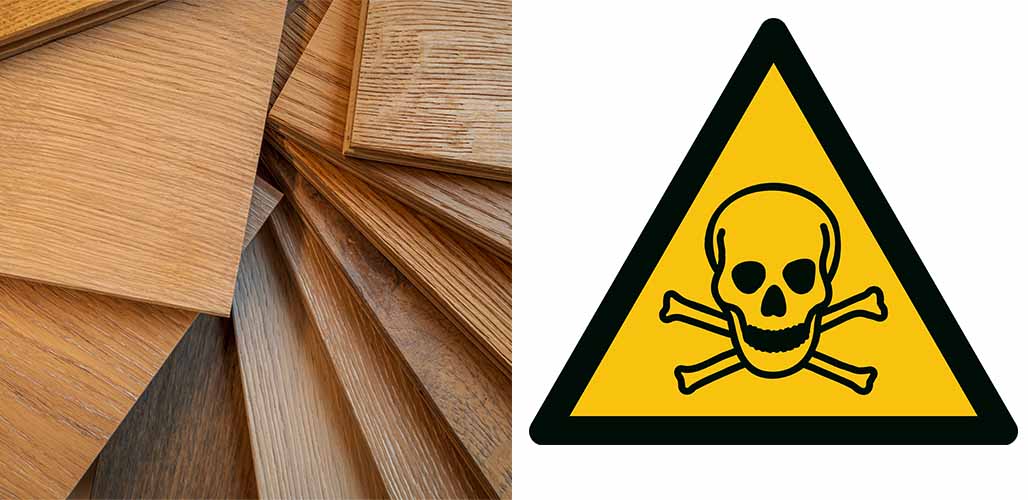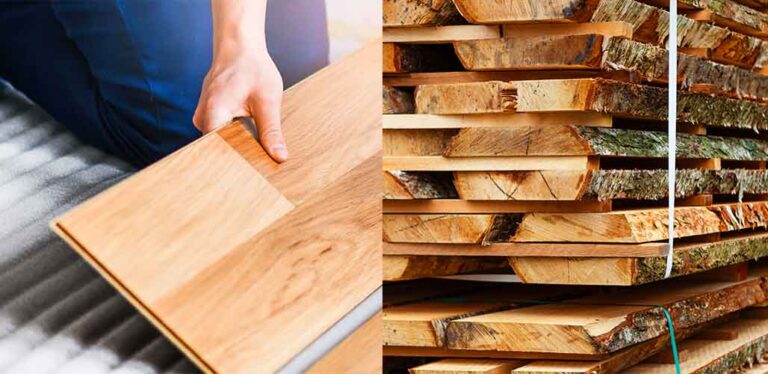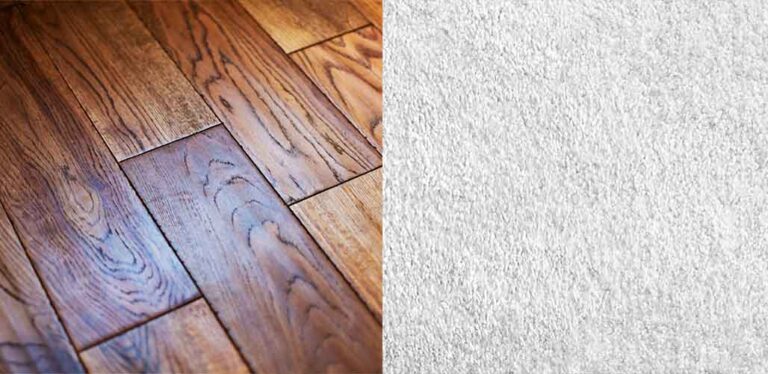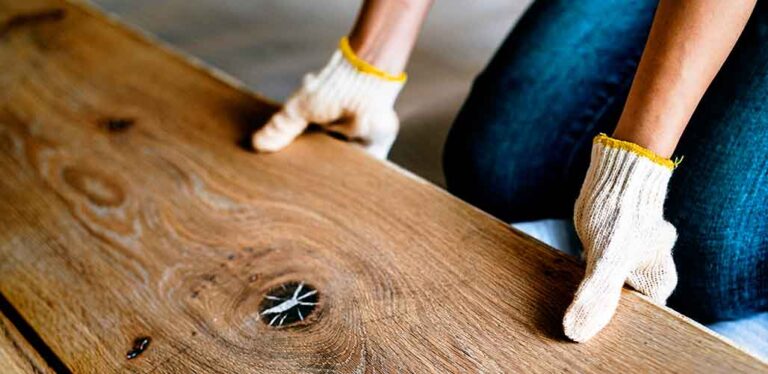Is Engineered Hardwood Flooring Toxic?
Is engineered hardwood flooring toxic? It’s a common rumor that engineered hardwood flooring is toxic. And, it’s true that some of the glues and resins used in the manufacturing process contain toxic chemicals, like formaldehyde. But, engineered hardwood flooring does not contain these substances in large enough quantities to cause us or our pets any real harm. In fact, laws and regulations are in place to restrict the amounts of toxic chemicals in our flooring. Some people may experience mild irritation from sensitivities to the chemicals in these glues, but this reaction is rare. In this guide, I’ll take a closer look at the potential toxicity of engineered hardwood flooring, and what options are the least dangerous for your home.
Contents
- Is engineered hardwood flooring toxic?
- How toxic is engineered hardwood flooring?
- What is the least toxic engineered hardwood flooring?
- Does engineered wood release formaldehyde?
- What is the healthiest flooring to install?
Is Engineered Hardwood Flooring Toxic?
Composite wood (engineered hardwood flooring) often contains formaldehyde. Formaldehyde is a colorless, flameless, and strong-smelling chemical present in many types of glue and resins. In large quantities this chemical can irritate the skin, nose, and throat. And if exposed for a long time, formaldehyde can trigger asthma.
Glues and resins that can contain formaldehyde are necessary to manufacture composite wood products such as particleboards, hardwood plywood, and medium-density fiberboard. This might sound quite alarming, but you don’t need to panic. Most hardwood floors don’t contain enough formaldehyde to cause serious health issues. And, laws like the Formaldehyde Standards for Composite-Wood Products Act have been passed by the US Congress to enforce emission standards on hardwood products and increase their safety.
How Toxic is Engineered Hardwood Flooring?
The California Air Resources Board (CARB) identified formaldehyde as a toxic air contaminant in March 1992. They proposed a regulation to reduce formaldehyde emissions in finished goods, hardwood plywood, and medium-density fiberboard panels in products such as fabricated cabinets, floors, and furniture. So, even though modern hardwood flooring can contain formaldehyde, it is not in large enough amounts to cause you serious harm.
Very sensitive people might experience some mild irritation, or might be able to smell a strong glue smell from some engineered floors. But, most people will feel or smell nothing. If you can notice a smell like this, you can try using tools like an air purifier. Or, opt for a more natural flooring that doesn’t use resins or glues.
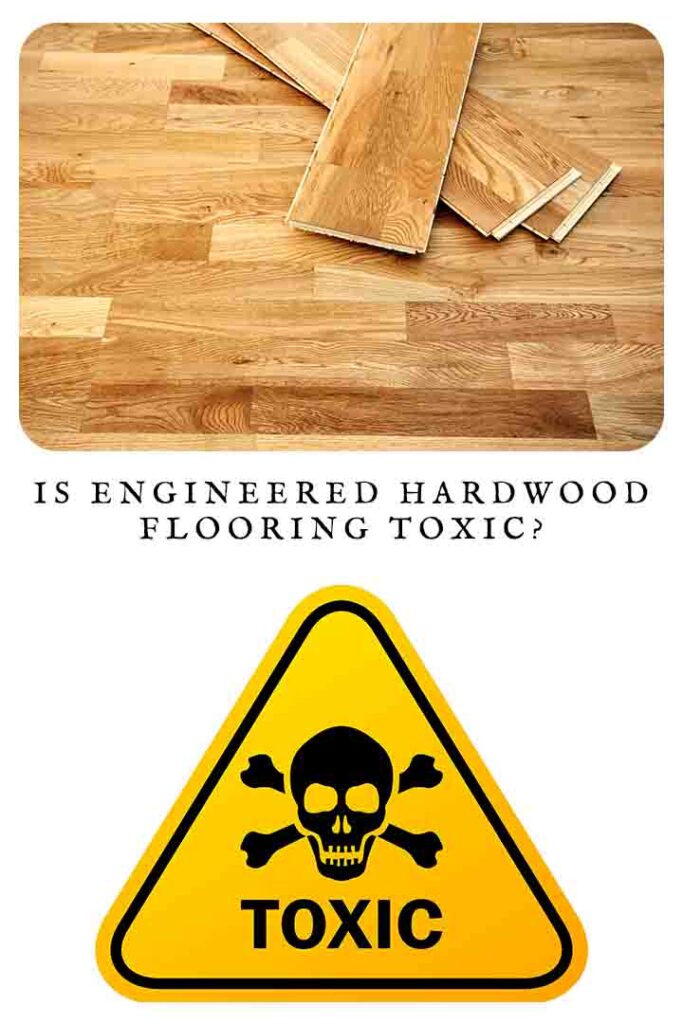
What is the Least Engineered Toxic Hardwood Flooring?
Non-toxic flooring uses all-natural materials such as natural stone tile and non-treated hardwood flooring. That said, however, there are several non-toxic synthetic flooring options.
When shopping for non-toxic flooring, go for the non-VOC (Volatile Organic Compounds) options. VOCs are compounds that have low water solubility and high vapor pressure. I’ve listed some of the least engineered toxic hardwood flooring options below:
Natural Hardwood Flooring
Natural hardwood flooring is a safe option if you’re concerned about floor toxicity. This type of flooring is not only durable and aesthetically pleasing, but it also adds value and luxury to your home. Hardwood flooring comes in various finishes, given that it’s harvested from different wood species. Rosewood, walnut, solid cherry, and mahogany offer different hardwood floor textures and shades.
During the installation process, don’t use glue, but rather nail down the hardwood pieces. You may also be able to find natural hardwood planks that click and lock together, removing the need for glues or nails.
Tile Flooring
Stone tile flooring is a non-toxic flooring option. Slate is a great option, since it’s an all-natural composition; the same goes for honed marble flooring. Not only are these flooring types beautiful, but they’re also highly durable. Ceramic tiles are an excellent non-VOC option. However, make sure you purchase them from accredited sellers to be safe.
Bamboo Flooring
High quality bamboo is another good non-toxic engineered hardwood flooring. It’s durable, versatile, and accentuates your room’s beauty. Bamboo flooring is sustainable and doesn’t need binders containing added formaldehyde during installation. But, be aware that low quality bamboo flooring can contain similar glues and chemicals to engineered hardwood flooring. So, you may still notice a strong smell.
Does Engineered Wood Release Formaldehyde?
Engineered wood is manufactured with resins and glue that bind the wood layers together. Some of these glues contain chemicals like formaldehyde. But, thanks to the laws and regulations in place, they will not be in large enough quantities to offgas in your home. You may be able to detect a glue-smell, but this does not necessarily mean you are breathing in formaldehyde.
What is the Healthiest Flooring to Install?
Solid hardwoods such as maple and oak are good engineered wood flooring options to install. Bamboo flooring is another healthy option. But, the quality of the flooring you choose can have the same impact as the material itself. And, remember restrictions are in place to keep formaldehyde levels low in our floors. Nail your planks in place or use glues that don’t have formaldehyde if you are still concerned.
Natural Linoleum is a healthy engineered hardwood flooring. The environmentally friendly material is water-resistant and resilient. The flooring is composed of a mixture of pine resin, linseed, cork flour, pigments, wood flour, and limestone. Natural linoleum is formidable for subfloor applications and only needs a coat of natural wax for protection and care.
Is Engineered Hardwood Flooring Toxic? A Conclusion
Engineered hardwood flooring is made by pressing different layers of materials and holding them together using resin and glue. The chemicals in the resins and adhesives contain harmful toxins such as formaldehyde which is dangerous for humans and animals in large quantities. But, our flooring will not contain them in large enough amounts to cause you any harm. And, if you’re still concerned, there are all-natural alternatives you can consider.
More Help Choosing the Right Flooring
- The disadvantages of bamboo flooring
- Can I salvage matted carpet?
- Vinyl vs carpet – what’s cheaper?
- Are tiles more expensive than linoleum floors?
References
- ‘One Hundred Eleventh Congress of the United States of America’, Authenticated U.S. Government Information
- ‘Airborne Toxic Control Measure to Reduce Formaldehyde Emissions from Composite Wood Products’, California Code of Regulations

